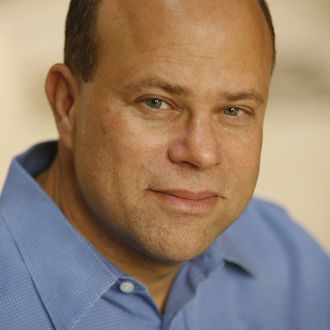
If you’re a hedge-fund manager, you have one job: to beat the market, using your special-investing juju to generate what’s called “alpha” for your investors by out-performing the S&P 500 or another basic benchmark. That’s it. That’s all you have to do.
The twisted genius of the hedge-fund business model, though, is that if you have enough money under management, you can literally be too big to fail, even if you don’t beat the market.
I was reminded of this today while looking over Institutional Investor’s “rich list,” its annual compilation of the outrageous amounts of money earned by top hedge-fund managers. In 2012, according to the list, the top earners in Hedgistan were:
David Tepper (brass-balls guy): $2.2 billion
Ray Dalio (intense-manifesto guy): $1.7 billion
Steve Cohen (insider-trading-investigation and art-buying guy): $1.4 billion
Those are huge numbers. (For perspective, Tepper’s $2.2 billion is roughly 43,500 times the median household income in the U.S., and 11 times the entire Yankees payroll.) And Tepper, at least, seems to have done his job well. According to DealBook, Tepper made his money “thanks, in part, to big bets on Citigroup, Apple and US Airways” that went the right direction and brought his fund up 30 percent on the year.
But Dalio and Cohen, who also made the top three with Tepper, didn’t even out-perform the market. Dalio’s hedge fund, Bridgewater Associates, made only 0.8 percent in its flagship Pure Alpha fund. Cohen’s firm, SAC Capital, made just 13 percent on the year, when it wasn’t being chased around by the Feds.
It was pretty easy to make money in 2012. Even your mother could have done it! (In fact, if your mother has a 401(k) with a heavy equities mix, she probably did.) All you had to do was invest broadly in the stock market. If you just bought just an S&P 500 index fund, you would have made somewhere in the neighborhood of 16 percent.
But the beauty of being the manager of a huge hedge fund, in part, is that you get paid no matter what. Both Dalio and Cohen fattened their own fortunes thanks to the fee structures of their funds, which give them a right to a certain fraction (usually 2 or 3 percent) of their assets under management, even if those assets don’t make money in a given year. In other words, if you have $83 billion in hedge fund assets under management, like Dalio does, you get about $1.7 billion just for turning on the lights.
To be fair to Dalio, you don’t get $83 billion under management by being a slacker. Bridgewater has out-performed almost every large hedge fund over the last two decades, and investors take those historical returns into account when deciding where to put their money.
And yet, he had a crappy year last year, and made $1.7 billion anyway. That is insane! And yet, it’s the way the system has always worked. Remind me: Why don’t we all run hedge funds, again?





























